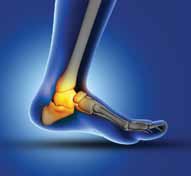By Donna Motley, Vice President of Claims
I think, as an insurance company, we are automatically given a bad reputation. Most people, at one time or another over the course of years, have had an experience with their insurance carrier, either vehicle or home owners. I am no exception. I would agree with most people that when dealing with a home or auto insurance carrier, there is a huge emphasis placed on damages that equates with “money”. While it is the carrier’s responsibility to make the insured whole, the dollar and cents are watched closely. And I do realize there is a lot of fraud in auto and home owners insurance make this scrutiny necessary.
In Workers’ Compensation, our responsibility is to make the “injured worker” whole. With all the possible variables surrounding a work related injury, how do you place a dollar value on that? There is a book sometimes utilized in the Workers’ Compensation industry entitled “Official Disability Guidelines” – or the ODG. Easily accessible on the Internet, the ODG categorizes by injury and provides the average number of days away from work for that injury, the estimated Indemnity and Medical costs associated with that injury, billing procedure codes, best practices for a return to work (with or without surgery) and suggested restrictions for returning to work based on job duties of the injured worker. In a perfect world, right?
While interesting reading, we at MTMIC do not utilize the ODG. Similarly, medical (treatment) decisions are not based on the “cost” of a procedure. Yes, when a claim is established in our system we have to establish a dollar figure that should cover full treatment until the injured worker is recovered and returned to work. This “reserve” is medical based description of the injury, extent of the injury, taking in to consideration the age of the injured worker, possible co-morbidities and physical skills required to return to work. It is not the decision of the Claims Department for an employee to have a CT Scan vs. MRI – that is the decision of the treating physician. We can make suggestions and ask questions, ask for an explanation and decide to dispute the requested test, but the dispute is based on medical evidence and not dollars spent or to be spent. We do make sure testing or physical therapy is not being performed because “they can”. Before authorization is extended, there has to be a medical basis and is warranted.
I can’t tell you how many times injured workers have accused us of making a decision “just to save money”. Or that we only allow injured workers to treat with a “Workers’ Compensation” doctor. It is true that we will not allow treatment with certain doctors, our decisions are not based on money, they are based on medical outcomes. We handle a lot of claims in our office and are able to witness physicians’ results. We want the best doctor for the injury. No one benefits, physically or monetarily, if the treating physician is not skilled in their practice – not the employee, employer or insurance carrier.
Adjusters are human too! Among our Claims Department staff and family members, we have experienced broken bones, trigger finger, tendinitis and carpal tunnel syndrome. And who did we seek to treat – the same physicians that we utilize for our claimants. If we are personally satisfied with the physician’s results, why wouldn’t an injured worker be satisfied? We tend to utilize physicians that are no nonsense so maybe the injured worker just doesn’t like what the doctor has to say. We are not cold or heartless, our goal is to have the injured worker recover, while at the same time keeping an eye out for fraud!









